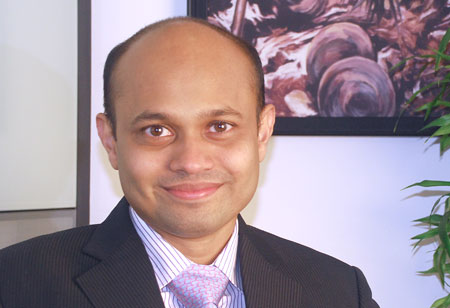By Vikram Shroff, Head, HR Laws (Employment & Labor), Nishith Desai Associates

Vikram Shroff, Head, HR Laws (Employment & Labor), Nishith Desai Associates
Nishith Desai Associates (NDA) is a research based international law firm that specializes in strategic legal, regulatory and tax advice coupled with industry expertise in an integrated manner. Vikram is a subject matter expert for industrial relations by society for human resources management (SHRM) and specialist in various employment and labour related projects.
“This is a question of ethics. Let’s call my lawyer…mytrusted advisor!”
This statement, in my view, demonstrates the role CEOs would expect their lawyers to increasingly play in the future. And that is assuming we lawyers are not replaced by technology, a risk already faced by several other industries.
It’s a challenge out there
Advising clients on employment and labour laws has been rather challenging yet equallyexciting. As lawyers, (i) we have to deal with close to 150 laws, (ii) several of those laws are state-specific (and updated versions may not be easily available) and (iii) there are regular notifications, circulars and judgments that we need to keep ourselves constantly updated with. With the current Government’s push on labour reforms, including consolidation of major labour laws, an HR lawyer’s challenges are expected to increase manifold. And then there always are those demanding clients who are faced with an employee / trade union situation and required the response yesterday.
Employees, the real assets
In the early days of my career, it was common to see corporate lawyers providing labour law advise to their clients. Today, clients who believe that employees are their most important asset, increasingly look towards experts and specialists to advise them on employment and labour matters.
Gone are the days when detailed memos and thorough case law analysis would satisfy the client. Gone are also the days when clients need to know what the law is. Clients are nowadays only looking for effective and implementable solutions. Today, there is less time to provide the solutions and possibly even lesser time for the client to implement them.
Workforce Strategy Advise
My practice is called “HR Law”, in view of a wider spectrum of advise to clients. Core labour law adviseand case law analysis no longer forms a majority part of my practice.
On a regular day, we are faced with a variety of other challenges, such asadvising on hiring strategy, reviewing of pre-employment screening process, drafting of CEO &key-man contracts, advising on expat and secondment arrangements, reviewing of compensation &carried interest payouts, structuring of ESOPs and phantom unit schemes, presentation on anti-bribery and corruption policy, dealing with sexual harassment allegations, advising on workforce reduction strategy, negotiating severance & release agreements, advising on post-termination restrictive covenants, assistance with employee fraud investigation…to name a few!We are also regularly called upon by CEOsto help train their in-house legal and HR teams to enable them to quickly and efficiently resolve employee situations.
This diversity and complexity of the new business needs, keeps us going.
Global Perspective
We are quite excited and motivated when we see how some of the global markets have been shaping up for employment lawyers. Developed countries like the US and UK boast of large law firms that focus only on labour and employment. In fact, a couple of those law firms have close to 1,000 attorneys. While the Indian legal market may not require or be able to support a very large team as of now, the team needs to remain on their toes and well aware of recent developments, ready to provide solutions when clients call.
Ethics & CSR
Lawyers are governed by a strict code issued by the Bar Council. The code provides a set of principles that lawyers should follow and teaches them how they should conduct themselves whilst practicing law. Lawyers’ duty is not just towards their clients but also towards the law, society and the courts. A lawyer’s duty towards his clients requires him to act with due skill and care, reasonable promptness and courtesy, at the same time maintaining his client’s confidentiality and avoiding conflicts of interest.
With clients expanding their horizons even beyond globalization, lawyers are all set to follow. With the help of technology, clients may require less of basic legal advice but are likely to rely more on lawyers to help on difficult questions including on ethics and corporate social responsibility.
Lawyers at Risk
So is our future secure? Not really. Infact, not at all! And the threat is not from clients building their own legal departments but from robotics, digitization and artificial intelligence, which may replace us lawyers.
Let me give you an example. The two senior partners of the ‘law firm’ Robot, Robot & Hwangare super computers - the Apollo Cluster and “Daria” XR-1029. As per its website, each of these ‘partners’ have their own areas of specialisation. Tim Hwang prefers to limit his title to a ‘junior partner’!Richard Susskind, in his book‘The Future of the Professions’, has forecasted an industry in which ‘our professions will be dismantled’ in favor of ‘increasingly capable systems’.
Conclusion
We lawyers remain hopeful of an exciting future. At the same time, we need to remain more responsive to client needs. We need to help our clients move up the value chain.We need to sue technology to our and our client’s advantage. And we need to assist the client deal with ethical questions.
“Thank you lawyer for being my trusted advisor.”
We use cookies to ensure you get the best experience on our website. Read more...